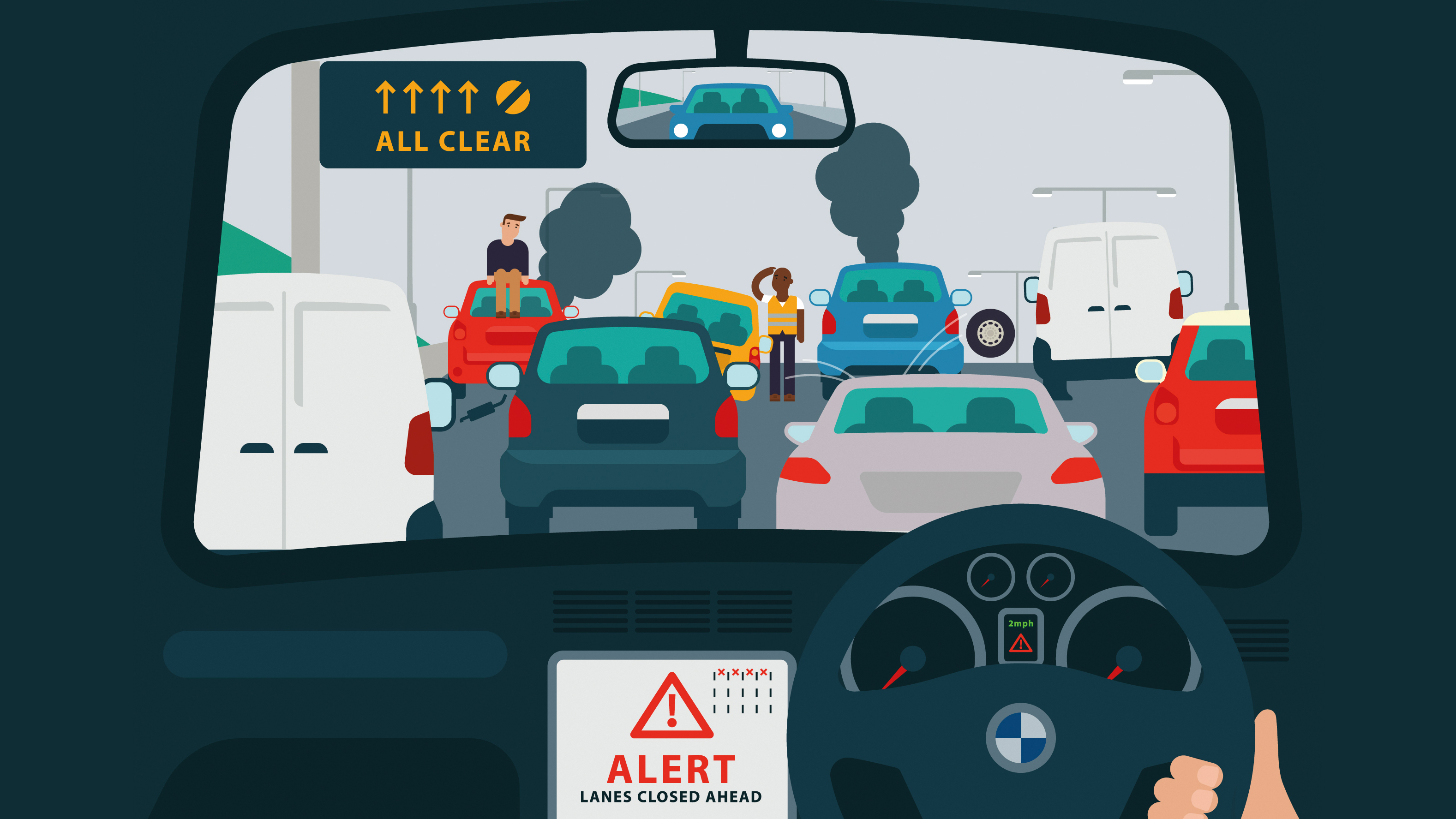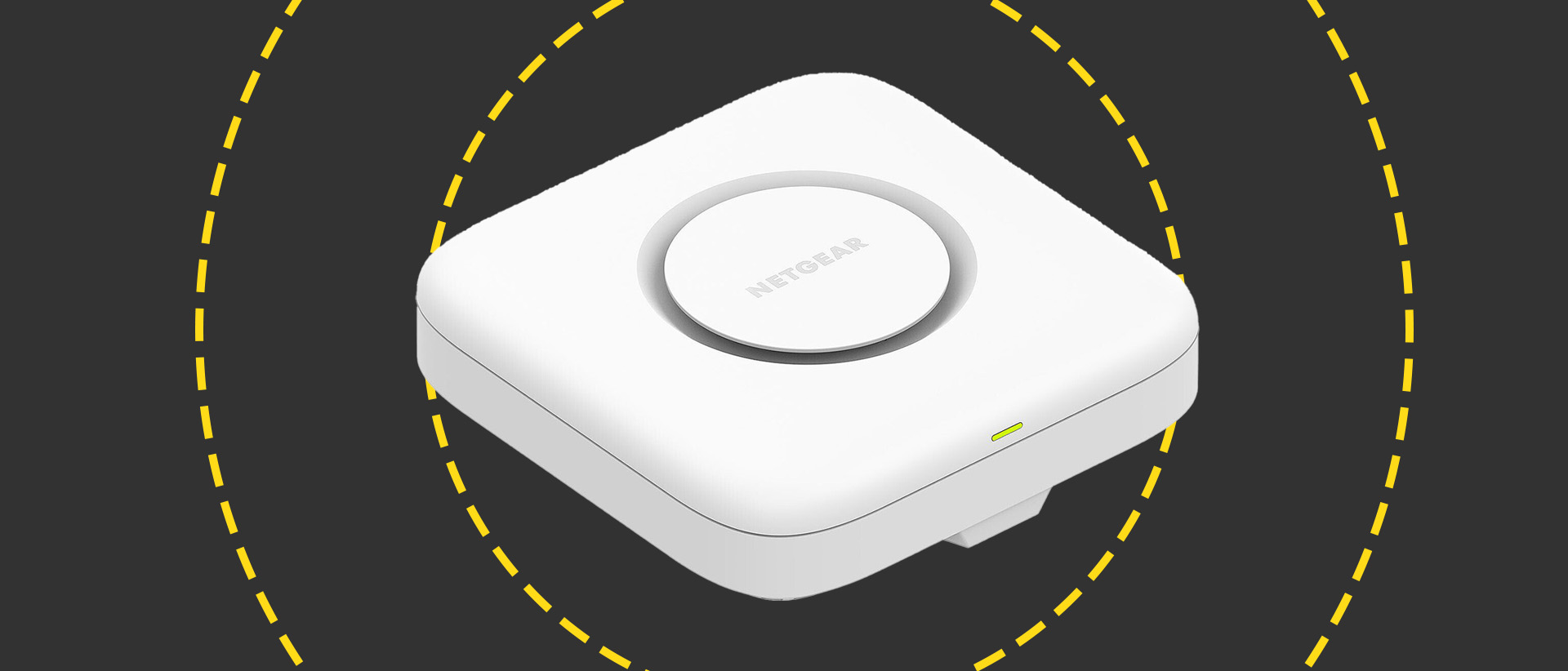Smart motorways aren’t smart enough
Free sat-nav apps could limit the dangers of so-called smart motorways, says Barry Collins


Smart motorways, it turns out, are not so smart. Removing the hard shoulder from these busy roads has resulted in avoidable deaths and a sharp increase in the number of near misses. Who could possibly have foreseen that, eh?
However, the failure of smart motorways isn’t necessarily down to the removal of that hard shoulder, even though that may seem an obvious cause. It’s just as much due to a failure of technology – specifically, the technology that was supposed to put the “smart” in “smart motorway”.
The introduction of smart motorways has been “conducted with a shocking degree of carelessness,” according to Sir Mike Penning, the former Roads Minister who originally signed off on the idea of smart motorways back in 2010. Most significantly, the radar technology that was supposed to detect stationary cars and close their lanes immediately has been implemented on just 6% of the smart motorway network, according to a report by The Guardian.
The rest of the network relies on drivers reporting that they’re stranded, or CCTV operators spotting stationary vehicles. As the All-Party Parliamentary Group on Roadside Rescue and Recovery noted, “many motorists don’t know what to do in such situations”. The recordings of 999 calls from drivers stranded in fast-moving traffic were described as “harrowing”.
Transport Secretary Grant Shapps – a reader of this column, as I know from previous correspondence with him – is conducting an urgent review of smart motorways, with rollout of any new sections now postponed until the investigation is completed. Nevertheless, those sections of smart motorways already in place will continue to operate and one thing’s for sure: the government won’t be replacing the hard shoulders or installing life-saving radar immediately. In the meantime, can I suggest to Mr Shapps that he urges the public to start using a free smartphone app that’s smarter than the motorways his government has rolled out?
Every time I set off on a longish road trip these days, I use the Google-owned sat-nav app Waze – even if I know where I’m going. Not only does its brilliant live traffic monitoring diligently reroute around jams, it also warns me of upcoming hazards in the road, whether it’s roadworks, a pothole or – yes – a driver who has broken down. The accuracy of Waze’s broken-down vehicle reports is astonishing, and it gives you plenty of time to slow down, reducing the risk of collision.
Are smart cities a disaster waiting to happen? How the driverless vehicles dilemma highlights wider system safety issues Driverless Cars: Uber car involved in fatal crash had software flaws Enough is enough: It's time to get us out of this jam
Waze relies on other drivers reporting incidents – and I do have some safety concerns about drivers fiddling with their smartphones to do this while they’re supposed to be driving. But the system also detects when a Waze user has suddenly stopped on an otherwise fast-flowing carriageway, and asks if they’re caught up in traffic or an accident. This means reports can be near-instant if the affected driver is also using Waze.
Get the ITPro daily newsletter
Sign up today and you will receive a free copy of our Future Focus 2025 report - the leading guidance on AI, cybersecurity and other IT challenges as per 700+ senior executives
In the absence of the radar that was supposed to be looking out for us on the roads, Mr Shapps and his department should be recommending that we all use apps such as Waze. Better still, the Highways Agency should start using the app to report broken-down vehicles – and to monitor the motorways, too.
A stretch of smart motorway is to be installed near me on the M23, pending the outcome of the current review. I won’t be driving up it without Waze to warn me of impending dangers. Who’d have thought Google would be better at keeping us safe on the roads than our own government?
Barry Collins is an experienced IT journalist who specialises in Windows, Mac, broadband and more. He's a former editor of PC Pro magazine, and has contributed to many national newspapers, magazines and websites in a career that has spanned over 20 years. You may have seen Barry as a tech pundit on television and radio, including BBC Newsnight, the Chris Evans Show and ITN News at Ten.
-
 Netgear WBE710 review
Netgear WBE710 reviewReviews The compact WBE710 delivers great cloud management features and a good turn of Wi-Fi 7 speed – but it does have a premium price tag
By Dave Mitchell Published
-
 Businesses are taking their eye off the ball with vulnerability patching
Businesses are taking their eye off the ball with vulnerability patchingNews Security leaders are overconfident in their organization’s security posture while allowing vulnerability patching to fall by the wayside.
By Jane McCallion Published